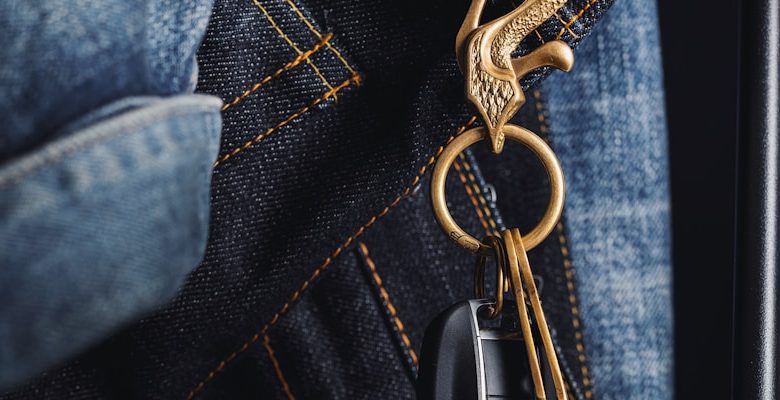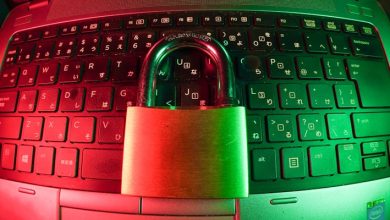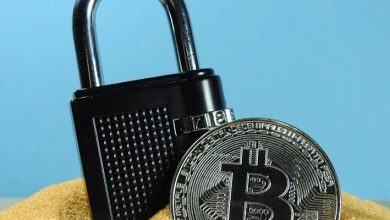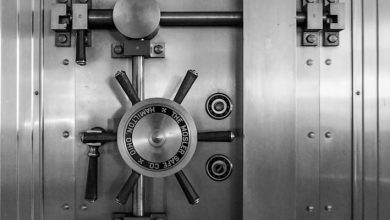How to Protect Your NFTs from Theft

- Understanding the risks of NFT theft
- Best practices for securing your NFTs
- The importance of using secure wallets for your NFTs
- Tips for safeguarding your NFT collection
- How to detect and prevent NFT fraud
- Ensuring the longevity of your NFT investments
Understanding the risks of NFT theft
Understanding the risks of NFT theft is crucial for anyone involved in the world of digital assets. NFTs, or non-fungible tokens, have gained popularity in recent years due to their unique nature and ability to represent ownership of digital art, collectibles, and more. However, with this popularity comes the risk of theft, as NFTs are stored on the blockchain and can be vulnerable to hacking and unauthorized access.
One of the main risks of NFT theft is the possibility of someone gaining access to your private keys, which are used to access and transfer your NFTs. If a hacker gains access to your private keys, they can easily transfer your NFTs to their own wallet without your knowledge or consent. This can result in the loss of your valuable digital assets and can be difficult to recover from.
Another risk of NFT theft is the potential for phishing attacks, where scammers attempt to trick you into revealing your private keys or other sensitive information. These attacks can come in the form of fake emails, websites, or social media messages that appear to be legitimate but are designed to steal your information. It is important to be cautious and only provide your private keys to trusted sources.
Additionally, smart contract vulnerabilities can also pose a risk to your NFTs. Smart contracts are used to facilitate the buying, selling, and trading of NFTs, and if there is a vulnerability in the code, hackers can exploit it to steal your digital assets. It is essential to research the smart contracts you interact with and ensure they are secure before using them to buy or sell NFTs.
Best practices for securing your NFTs
To ensure the security of your valuable NFTs, it is essential to follow best practices to prevent theft and unauthorized access. One of the most important steps you can take is to use a secure wallet to store your NFTs. By using a hardware wallet, you can keep your NFTs safe from online threats such as hacking and phishing attacks.
Another key practice is to be cautious when sharing information about your NFTs online. Avoid posting sensitive details such as wallet addresses or private keys on social media or public forums. This information can be used by cybercriminals to steal your NFTs.
Additionally, consider using a strong password to protect your wallet and NFTs. Avoid using easily guessable passwords or reusing passwords across multiple accounts. By creating a unique and complex password, you can add an extra layer of security to your NFTs.
Regularly monitor your NFT transactions and wallet activity for any suspicious behavior. If you notice any unauthorized activity, report it immediately to your wallet provider and take steps to secure your account. By staying vigilant and proactive, you can help ensure the safety of your NFT investments.
The importance of using secure wallets for your NFTs
When it comes to protecting your valuable NFTs, using secure wallets is of utmost importance. Secure wallets provide an extra layer of protection against theft and unauthorized access to your digital assets. By storing your NFTs in a secure wallet, you can have peace of mind knowing that your investments are safe and secure.
Tips for safeguarding your NFT collection
Protecting your NFT collection from theft is crucial in ensuring the security of your digital assets. Here are some tips to safeguard your NFTs:
- Use a secure digital wallet to store your NFTs. Make sure to choose a wallet that offers strong encryption and multi-factor authentication to prevent unauthorized access.
- Avoid sharing your private keys or seed phrases with anyone. Keep this information secure and never disclose it publicly.
- Be cautious when interacting with unknown websites or platforms. Only connect your wallet to reputable and trusted sites to minimize the risk of phishing attacks.
- Consider using a hardware wallet for an extra layer of security. Hardware wallets store your private keys offline, making it harder for hackers to access your NFTs.
- Regularly monitor your NFT collection for any unusual activity. If you notice any unauthorized transfers or changes, take immediate action to secure your assets.
By following these tips, you can better protect your NFT collection and minimize the risk of theft. Stay vigilant and proactive in safeguarding your digital assets to enjoy them for years to come.
How to detect and prevent NFT fraud
One way to protect your NFTs from theft is to be vigilant and proactive in detecting and preventing fraud. By taking the following steps, you can reduce the risk of falling victim to NFT scams:
- Verify the authenticity of the NFT: Before purchasing or trading an NFT, make sure to verify its authenticity. Check the creator’s profile, the platform it’s listed on, and any accompanying documentation to ensure that the NFT is legitimate.
- Use reputable marketplaces: Stick to well-known and reputable NFT marketplaces when buying or selling NFTs. These platforms often have measures in place to prevent fraud and protect users from scams.
- Avoid sharing private keys: Never share your private keys with anyone, as this information can be used to gain unauthorized access to your NFTs. Keep your private keys secure and only share them with trusted individuals.
- Be cautious of phishing attempts: Be wary of unsolicited emails, messages, or links that ask for your personal information or login credentials. These could be phishing attempts aimed at stealing your NFTs or sensitive data.
- Monitor your NFTs regularly: Keep a close eye on your NFT collection and transaction history to detect any suspicious activity. If you notice anything out of the ordinary, take immediate action to secure your assets.
By staying informed and implementing these preventive measures, you can safeguard your NFTs against fraud and enjoy peace of mind knowing that your digital assets are protected. Remember, it’s always better to be safe than sorry when it comes to safeguarding your valuable NFTs.
Ensuring the longevity of your NFT investments
Ensuring the longevity of your NFT investments is crucial in protecting your digital assets from potential theft. One way to safeguard your NFTs is by storing them in secure digital wallets that offer advanced encryption and multi-factor authentication. Additionally, consider diversifying your NFT portfolio across multiple platforms to reduce the risk of a single point of failure.
Regularly updating your security protocols and staying informed about the latest cybersecurity threats can help you stay one step ahead of potential hackers. It’s also important to be cautious about sharing sensitive information online and to avoid clicking on suspicious links or downloading unknown files that could compromise the security of your NFTs.
Another key aspect of protecting your NFT investments is by regularly backing up your digital assets on secure offline storage devices such as hardware wallets or USB drives. By creating multiple copies of your NFTs and storing them in different locations, you can minimize the risk of losing access to your assets in case of a security breach.
Furthermore, consider using decentralized storage solutions such as IPFS or Arweave to store your NFTs securely on the blockchain. These platforms offer enhanced security features and ensure the immutability of your digital assets, making it harder for unauthorized users to tamper with or steal your NFTs.
Overall, taking proactive steps to protect your NFT investments can help you mitigate the risk of theft and ensure the longevity of your digital assets. By implementing robust security measures, staying vigilant against potential threats, and leveraging decentralized storage solutions, you can safeguard your NFTs and enjoy peace of mind knowing that your investments are secure.



